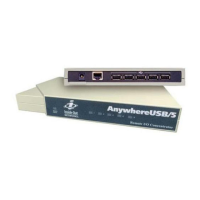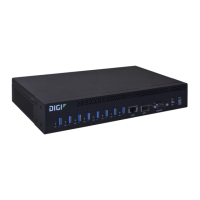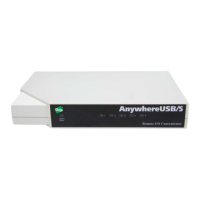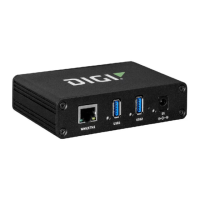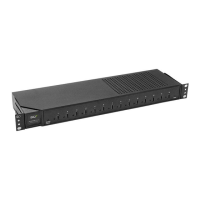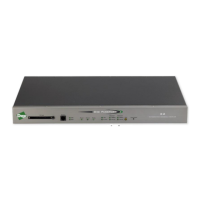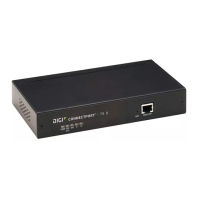Security
Security-related features in AnywhereUSB include:
n
Unique password for each Hub. See Change the Hub password.
n
Configurable network service port numbers.
n
Secure access and authentication to the web UI and CLI.
n
One password, one permission level.
n
Selectively enable and disable network services such as mDNS, HTTP/HTTPS, and SSH.
n
Encrypted access to AnywhereUSB® Plus traffic: Access to the USB-over-IP traffic is encrypted
and authenticated by default. This cannot be disabled.
ClientID
The client ID is a unique identifier that you assign when you initially install the Anywhere
USBManager. When you launch the Manager for the first time and log in, the Manager creates a
secure identity certificate that is associated with the client ID. This certificate is used to validate your
account with the Hub.
n
Stand-alone: If you installed the Manager as a stand-alone, the client ID and the certificate
identify the user's login credentials on the computer.
n
Service:If you installed the Manager as a service, the client IDand the certificate identify the
computer.
When the client IDand certificate have been created, the computer is able to connect to the Hubs that
recognize that client ID. Any other computer with the same client IDwill be rejected.
Note In some cases, multiple computers may inadvertently be used by multiple users that have the
same client ID. To fix this issue, see AnywhereUSBManager client IDis not unique.
Client ID length
The number of characters allowed in the Client ID field is variable and is dependent on UTF-8
encoding of the characters. Note that some characters are multi-byte characters, which reduces the
number of characters that are allowed in the field. Currently, the Client ID field is a maximum of 63
bytes encoded in UTF-8.
Assign a client ID to a user account
A client ID is assigned to user credentials the first time a user logs into a computer and launches the
AnywhereUSB Manager.
AnywhereUSB® Plus User Guide
777
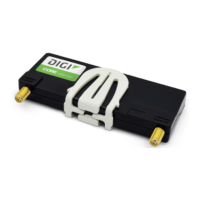
